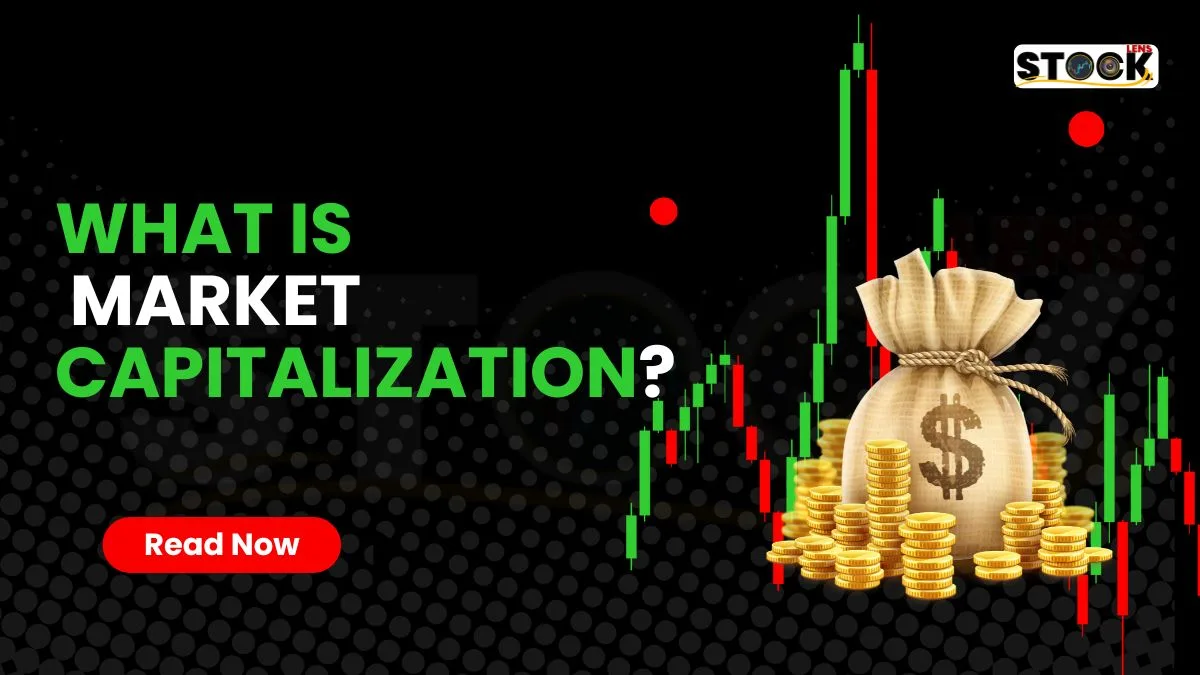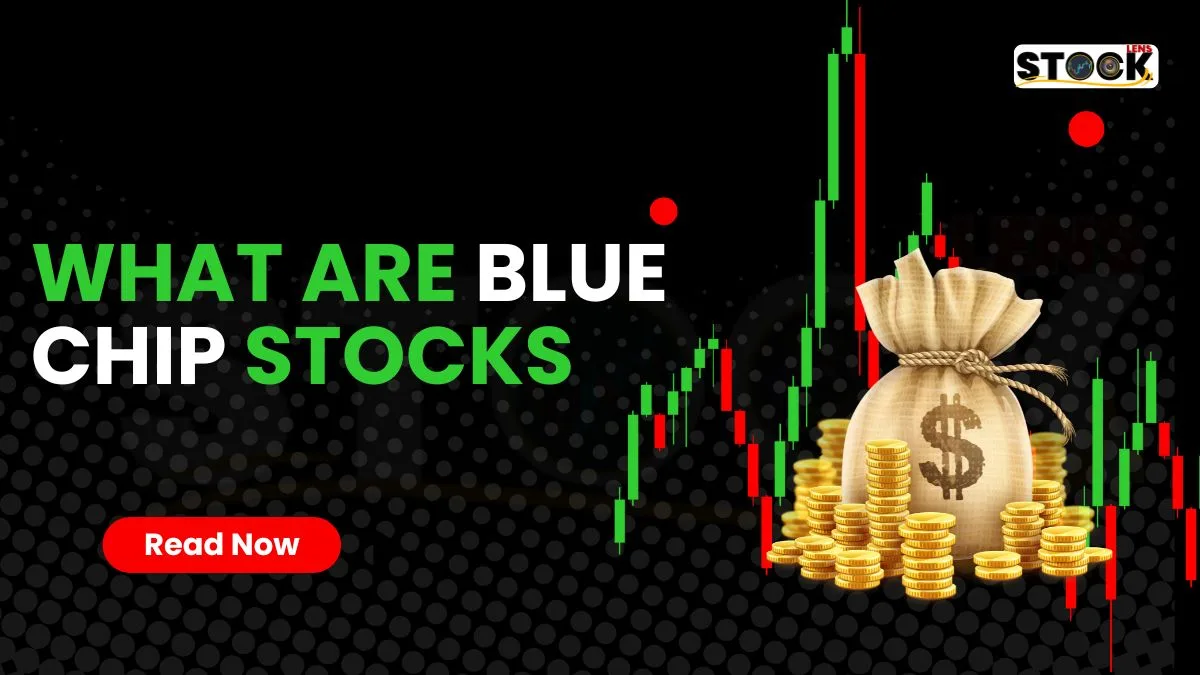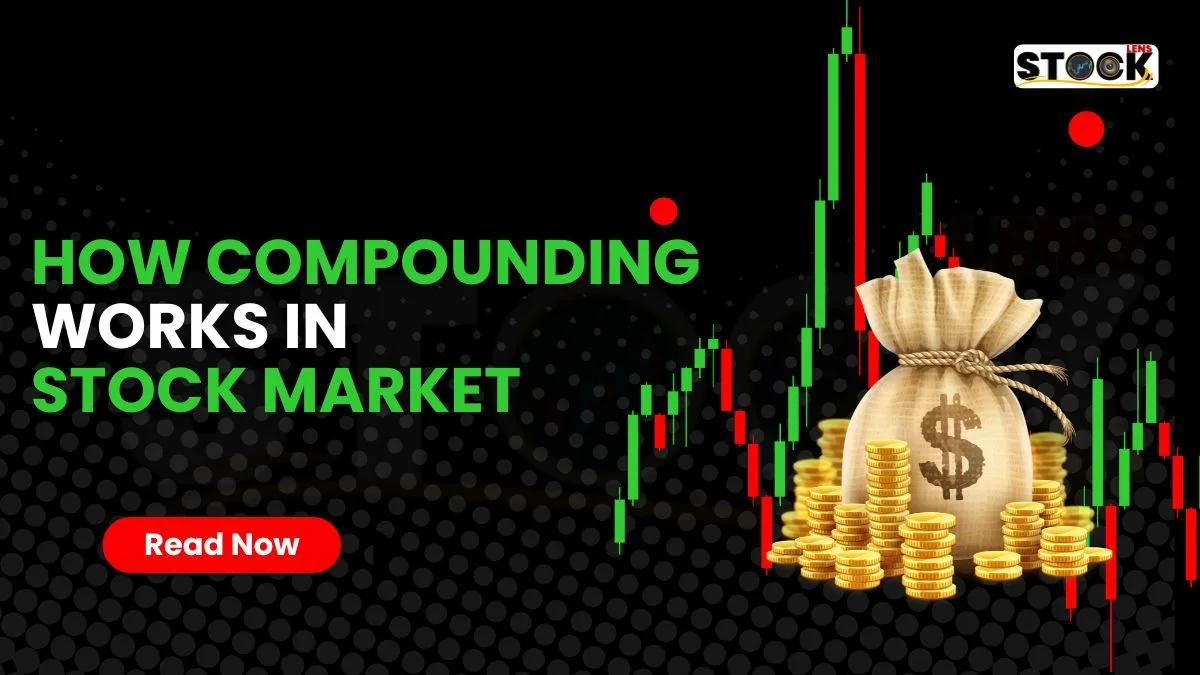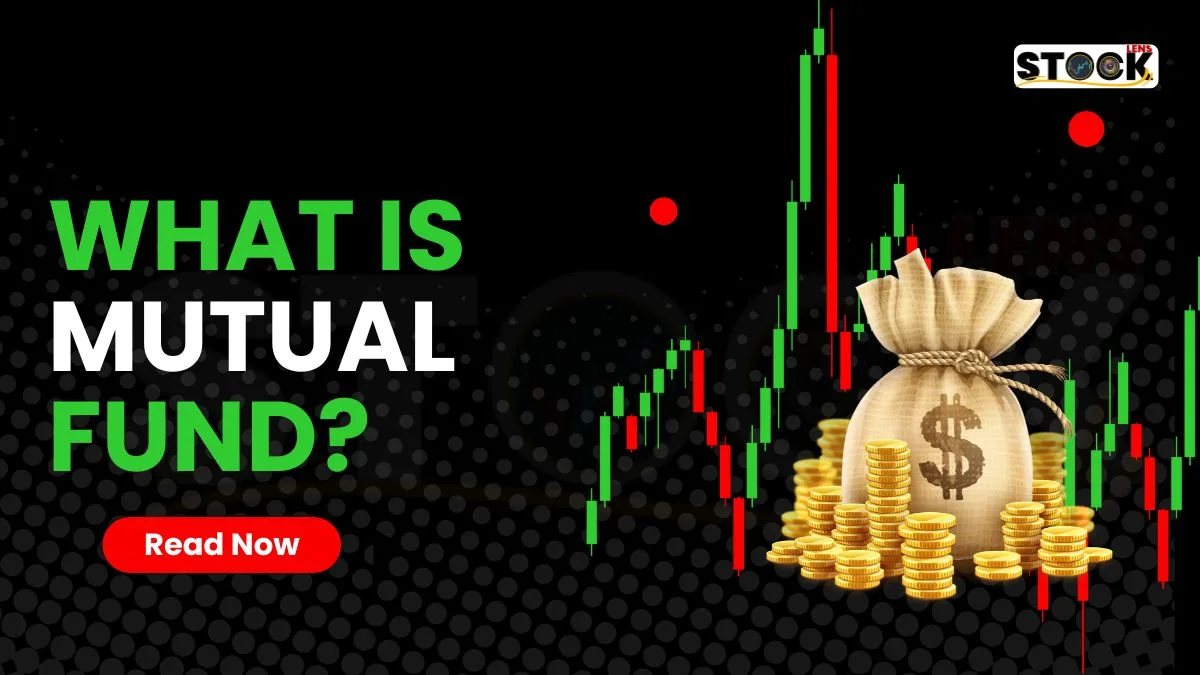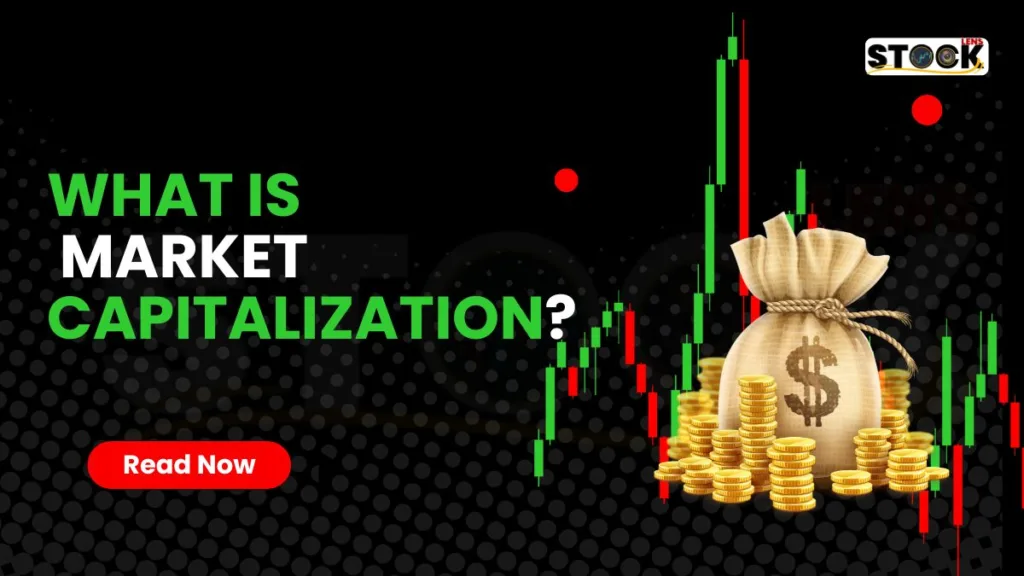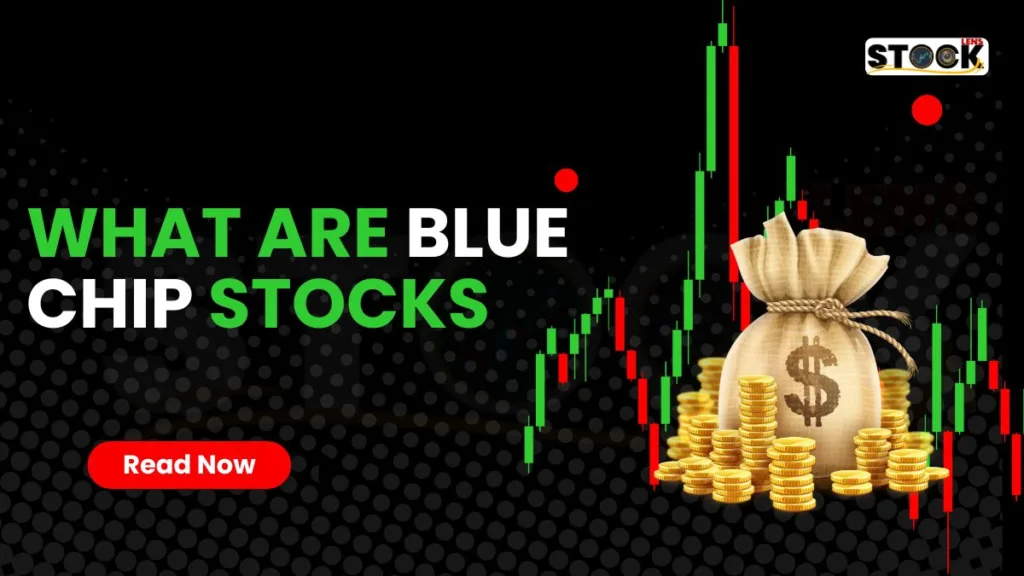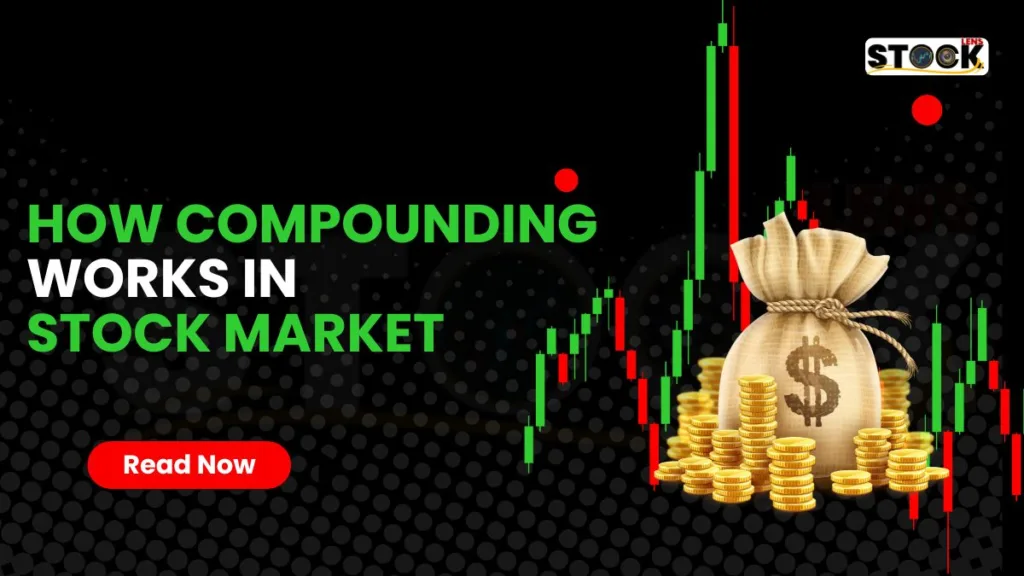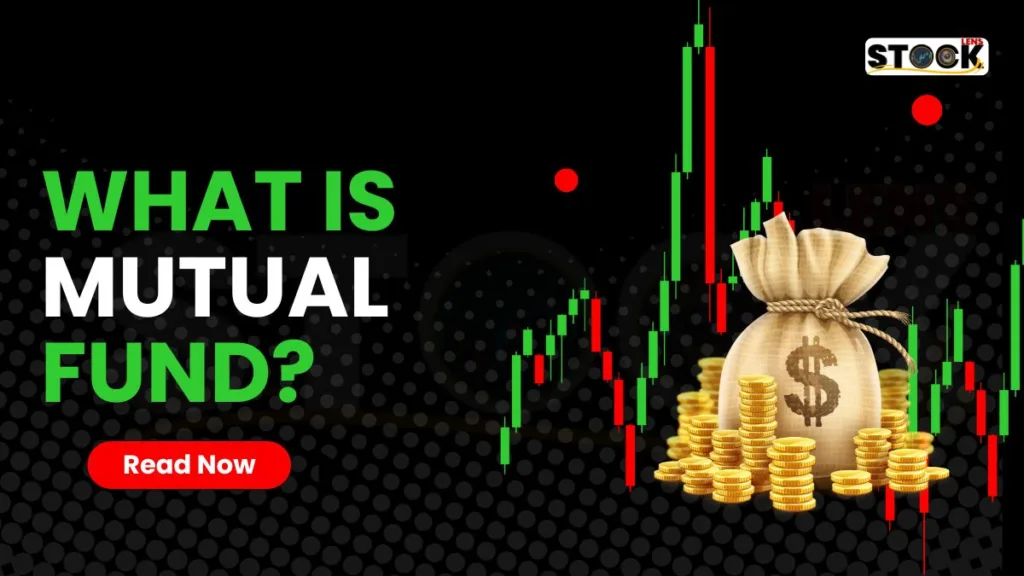Market Capitalization shows Company’s size and total values. Total market value of the company’s outstanding shares is known as Market Capitalization.
Important Factors
Market Capitalization shows Company’s size and total values.
Market Capital = Total No of outstanding shares X current Market Price (Per Share)
We cannot decide company’s Market capitalization on the basis of share price.
What is Market Capitalization ?
Market Capitalization or Market Cap is a total value of a company outstanding shares. Investors use market cap to determine company size and value. This figure helps investors assess the company’s size, stability, and potential for growth. Here Outstanding shares means the shares owned by stockholders, company officials, and investors. Also the shares of the owners is not including in outstanding shares.
Market Capitalization tells us how much a company is worth as determined by the Stock Market.
How to Calculate Market Capitalization?
Market Cap = Current Share price * Total number of outstanding shares.
Current share price : the latest traded price of the Company’s share.
Outstanding Shares : The total number of shares issued by the company and they are currently held by all shareholders, including institutional investors and company insiders.
Assume that a Company With name X whose total outstanding shares = 20 million and current share price is $100 per share then the Market Capitalization of that company =20 million X 100 =$2 billion.
And a second company With a share price $1,000 and only 10,000 outstanding shares then market cap of this company = $1000 X 10,000 Share = $10 million.
Important Considerations
Excluding Treasury Shares: Shares that are repurchased by the company and held in its treasury are not included in the calculation of outstanding shares.
Diluted Market Cap: This roadway accounts for all potential shares that could be issued, such as those from stock options or convertible securities, providing a more in depth view of a company’s value.
Free-Float Market Cap: This method calculates market cap by considering only the shares available for public trading, excluding those held by insiders or locked-in shares.
Why Market Cap Matters?
Investment Decisions
Market cap shows a company’s size and potential risk, aiding investors in making informed decisions. A good Market Capital is the sign of leadership in their sectors so it could be easy for investment decision.
Portfolio Diversification
Understanding market cap helps in diversifying investments across different company sizes, balancing potential risks and returns. By the help of Market Cap we can easily diversify our investment in different sectors, and it is helps us to gain profit in future.
Market Comparisons
Market cap allows for comparisons between companies within the same industry, providing insights into their relative sizes and market positions. We can compare same sectors company and invest in good one who have great fundamentals.
Merger and Acquisitions
In mergers and acquisitions, market capitalization plays a vital role in determining the value of a company. It helps acquirers assess company represents a good value. That is why Market Capitalization helps in merger and acquisitions.
Categories of Market Capitalization
Companies are simply classified into different categories on the basis of their market capitalization. These categories help investors understand the company’s size and the associated risk and return potential.
Large cap Companies
Market Cap : Capital with $10 billion or more Are to be consider as a large-cap company.
Characteristics: These are well-established companies with a stable financial history. They are the leaders in their industry and therefore they offer steady returns with lower risk. They generally reward investors with dividend payment regularly. Examples include Alphabet, Microsoft Corp. and Apple Inc.
Mid-Cap Companies
Market Cap: Capital with $2 billion to $10 billion are said to be Mid-Cap company.
Characteristics: Mid-cap companies are in a growth phase. due to this reason there are higher volatility compared to large-cap companies that’s why they offer a balance between risk and return with potential for growth. Example include Eagle Material Inc.
Small-Cap Companies
Market Cap: Capital with $2 billion to $10 billion are said to be Mid-Cap company.
Characteristics: Capital with $250 million to $2 billion are commonly classified as a Small-Cap Company.
Characteristics: These companies are often newer or operate in niche markets. They offer high growth potential but on other hand they come with high risk and volatility. Investors should be cautious about Small-cap stocks. Always invest thorough research in small-cap stocks.
Factors Influencing Market Capitalization
Stock Price Fluctuations: Fluctuations or Changes in the stock price directly impact the market capitalization. An increasing stock price leads to a higher market cap, while a decreasing stock price results in a lower market cap. That’s why price fluctuation affect the Market Capitalization. This type of fluctuations commonly seen in Mid-cap and Small-Cap Companies.
Number of outstanding shares: The total number of shares a company has issued affects its market cap. Companies may issue additional shares, which can dilute existing shareholders’ equity and directly impact the Market Cap.
Stock Buybacks: When company repurchase their own shares then the number of outstanding shares are reduce. Therefore Earning Per Share (EPS) is increase, And the stock price is potentially raise, thereby increasing the Market Cap.
Market Capitalization VS Revenue.
Market Capitalization: is the measure of the total value of a publically traded companies outstanding shares. Or represent the total values of the company’s share.
For e.g. Apple represent a Market Capital$3 Trillion, this astronomical market cap increased investors confidence.
Revenue : Also known as sells or turnover is the income generated by a company from its primary business activity such as sell of goods or services. It represents a total amount of money earn by the company before deducting expenses and other costs. Revenue is typically reported on a company’s income statement and serves as a crucial indicator of its top line performance. Amazon.com reported over $386 billion in revenue for the fiscal year 2022 driven by its dominant position.
Amazons Market Capitalization Is influenced by a combination of factors including profitability margins growth potential and Market Sentiment.
While Market Capitalization provides insight into a company’s market value, Revenue indicates its operational performance. A company can have high revenue but a low market cap if its stock price is undervalued or if it has a large number of outstanding shares.
The Relationship
Market Capitalization
Relation while Market Capitalization and Revenue are both important metrics for evaluating a company. It is essential to understand major aspects of its financial performance. Market Capitalization reflects the Market’s valuation of company’s equity taking into account factor such as future growth prospects, profitability and perceived risk.
Revenue
on the other hand represents the actual income generated by the company’s business activity over a specific period for e.g. Tesla has garnered significant attention from investors and analyse disruptive approach to electric vehicles and renewable energy despites its relatively modest revenue compared to traditional automakers.
What does High Market Cap tell you?
Market Cap tells us a overall idea about the Company. A high Market Cap signifies that the company is leading their industry or have a low risk for investment. They are with branding of their name and it builds a confidence in their investors. while small-cap companies may offer higher growth potential but come with increased volatility.
The Market Cap can give investors an idea of the potential risk and return associated with a company. Larger companies tend to have established revenue streams and are less susceptible to market fluctuations, whereas smaller companies might experience more significant price swings.
Conclusion
Market capitalization is a fundamental concept that helps investors to know a company’s size, stability, and growth potential. By understanding market cap and its implications, investors can make informed decisions about their investment, diversify their portfolios with various sectors, and invest their money for achieving their financial goals and risk tolerance.
Happy Investing.
